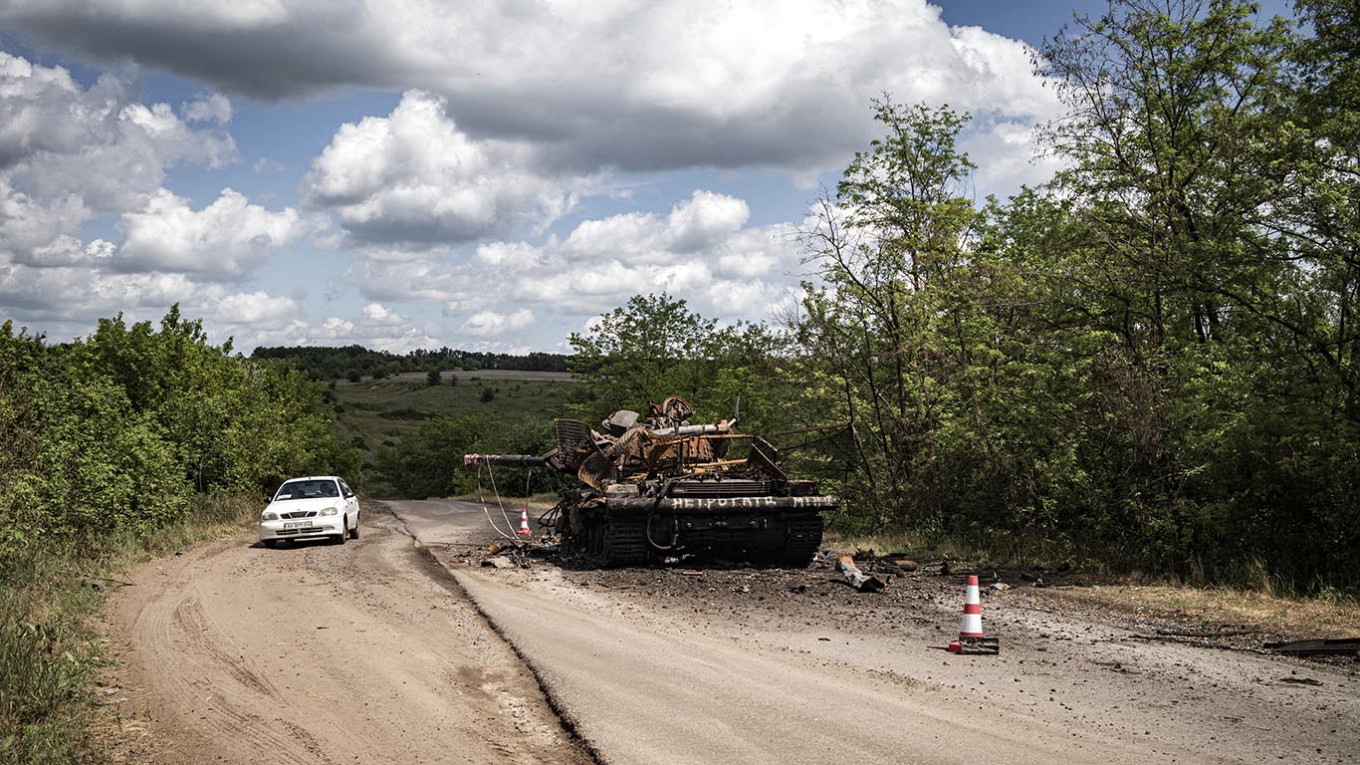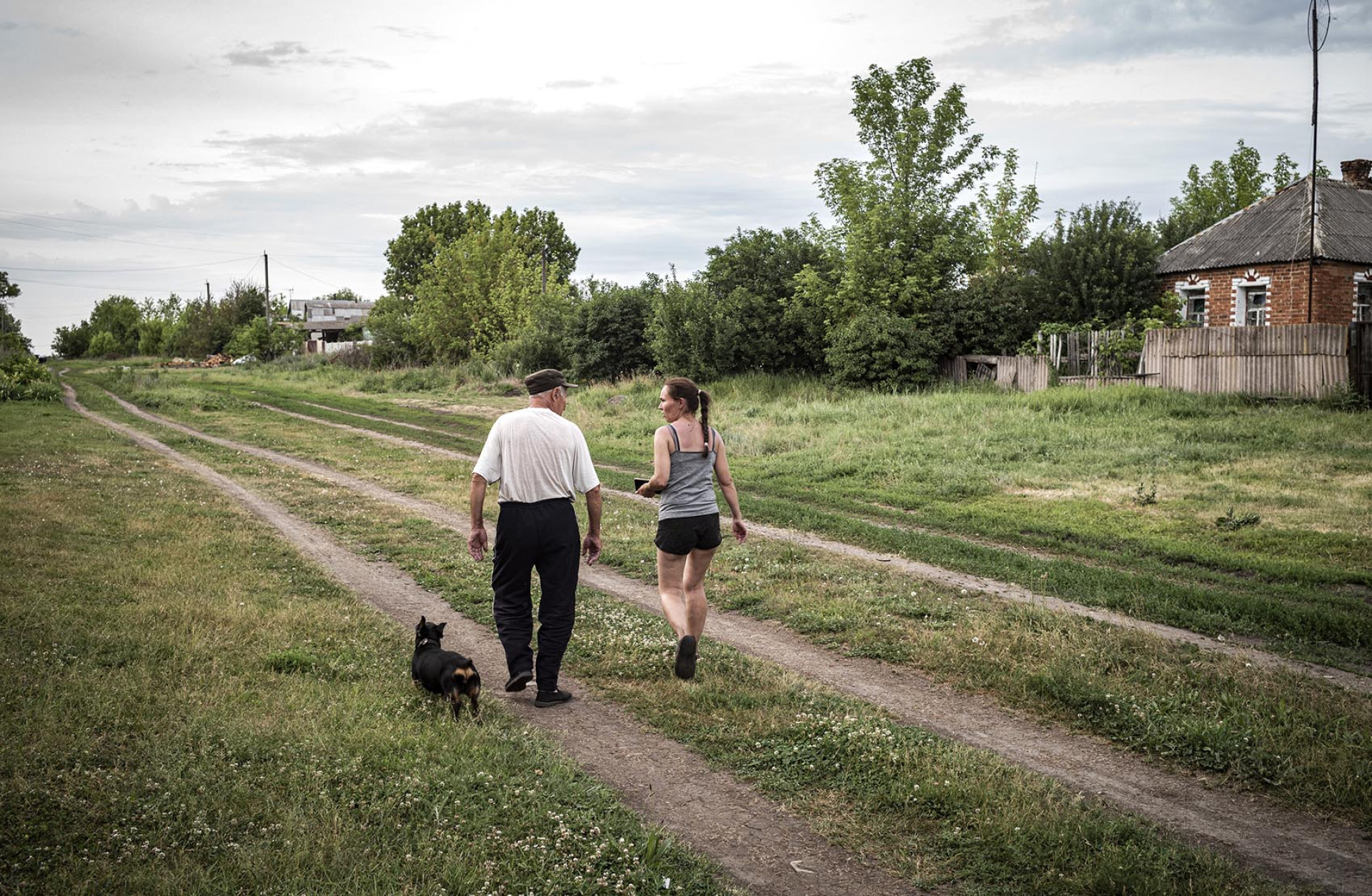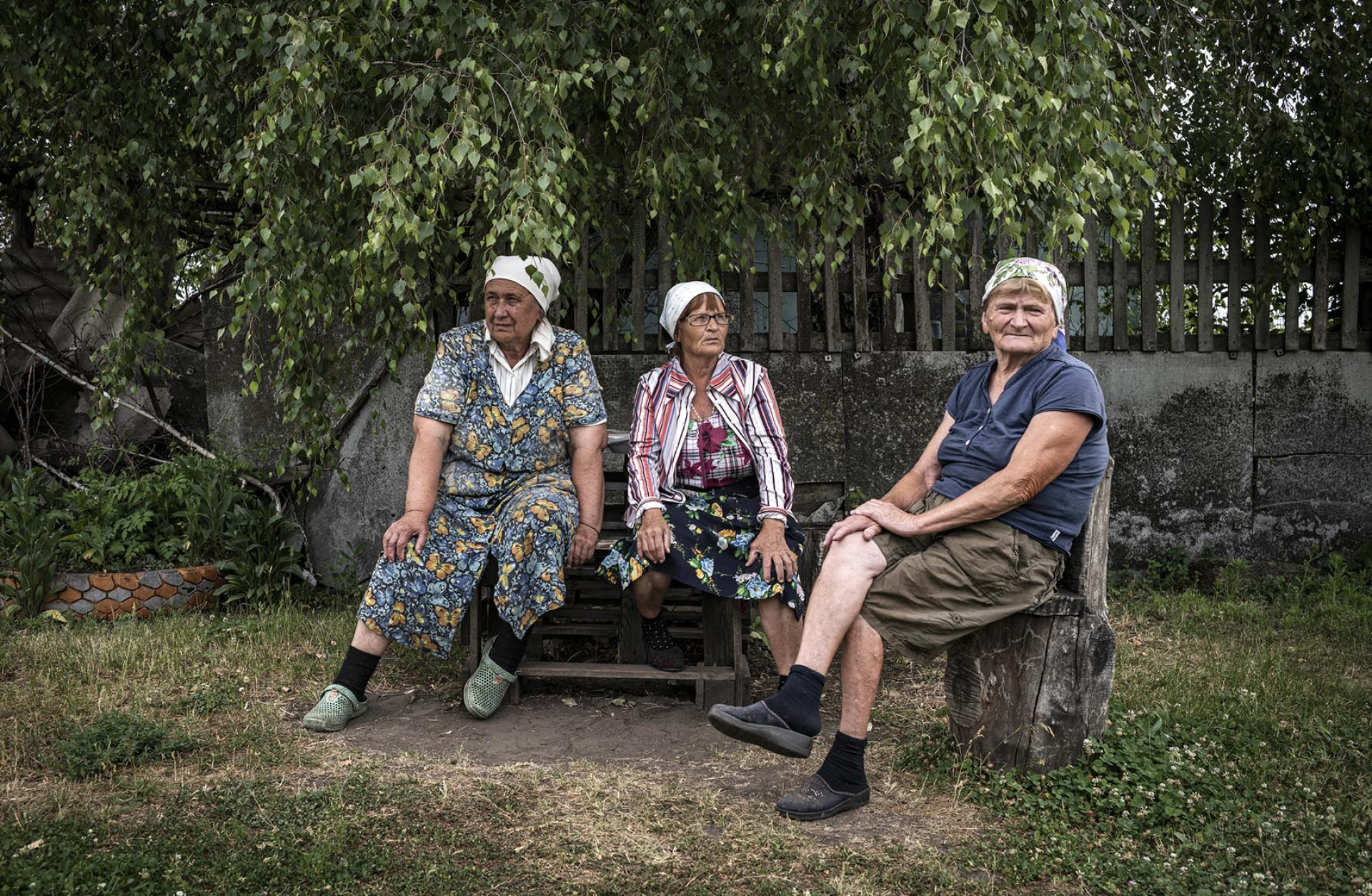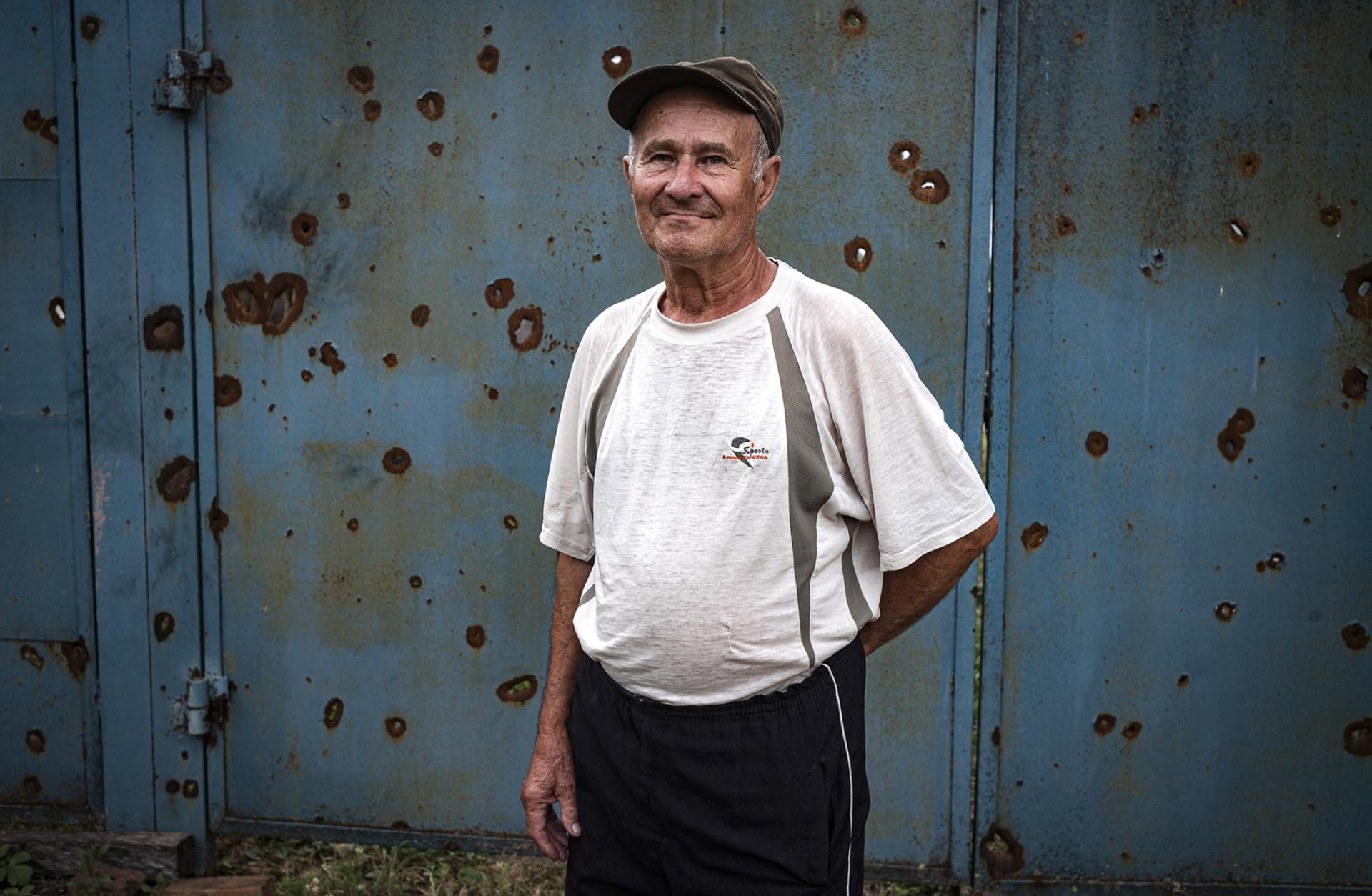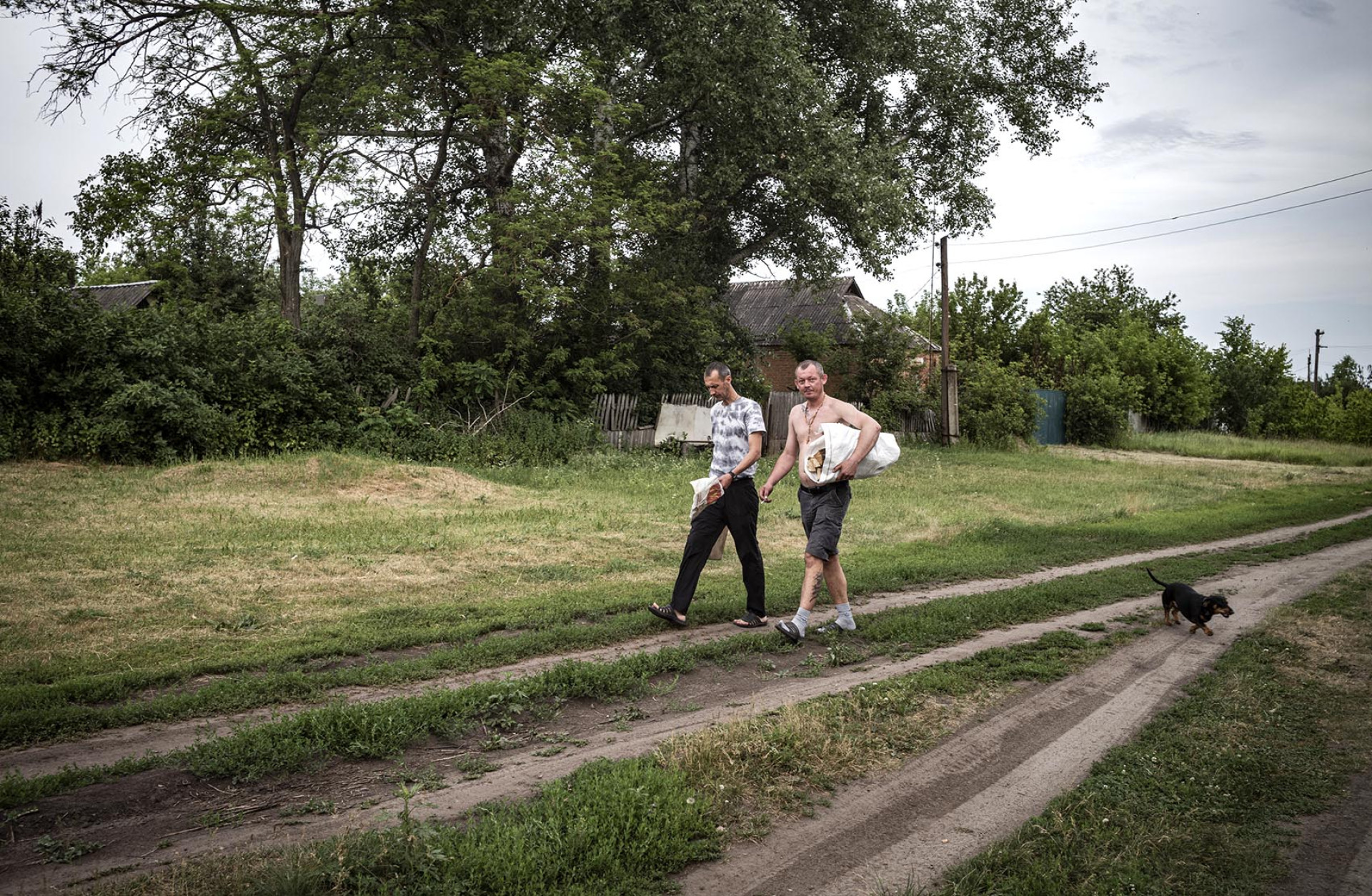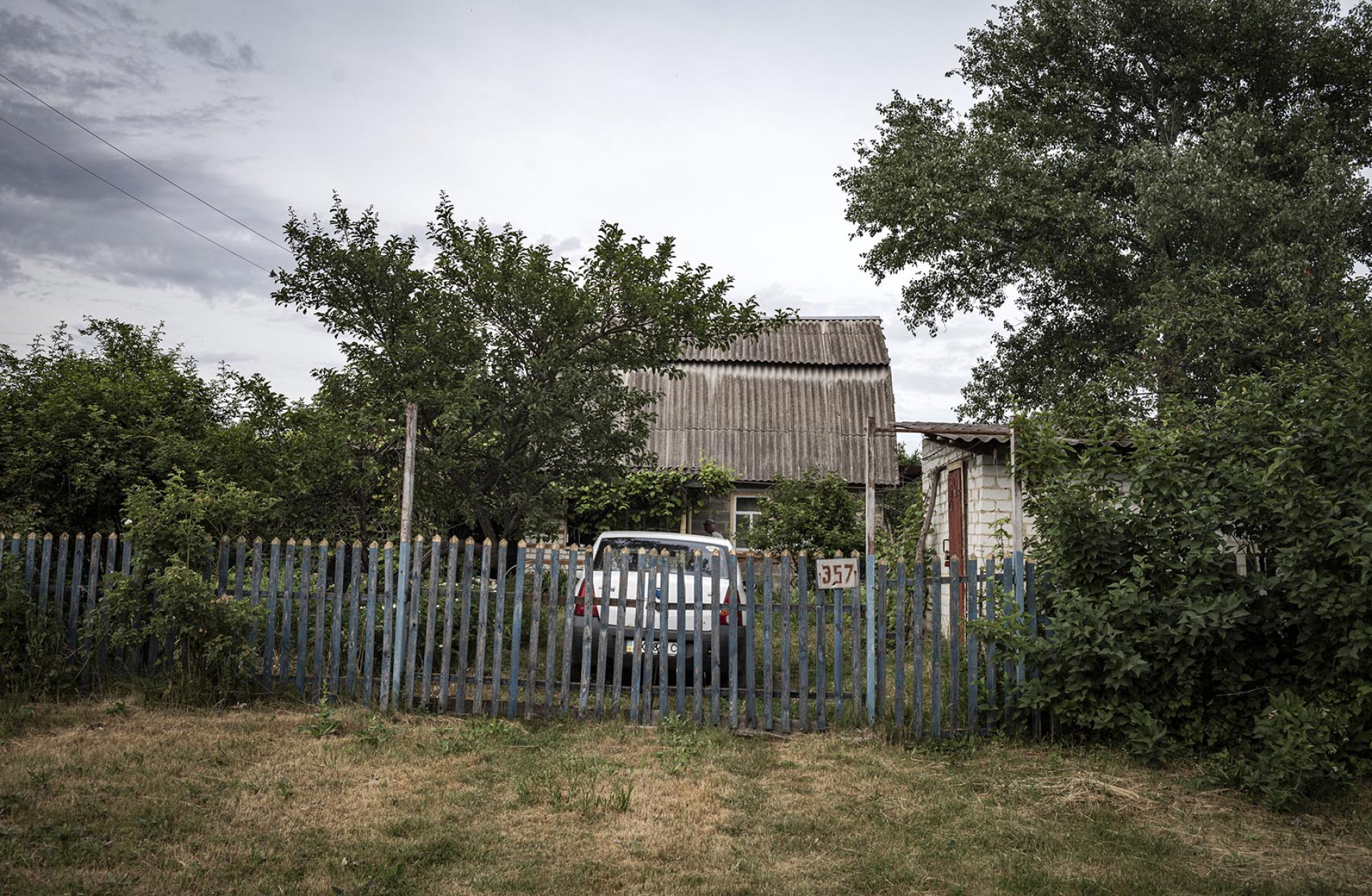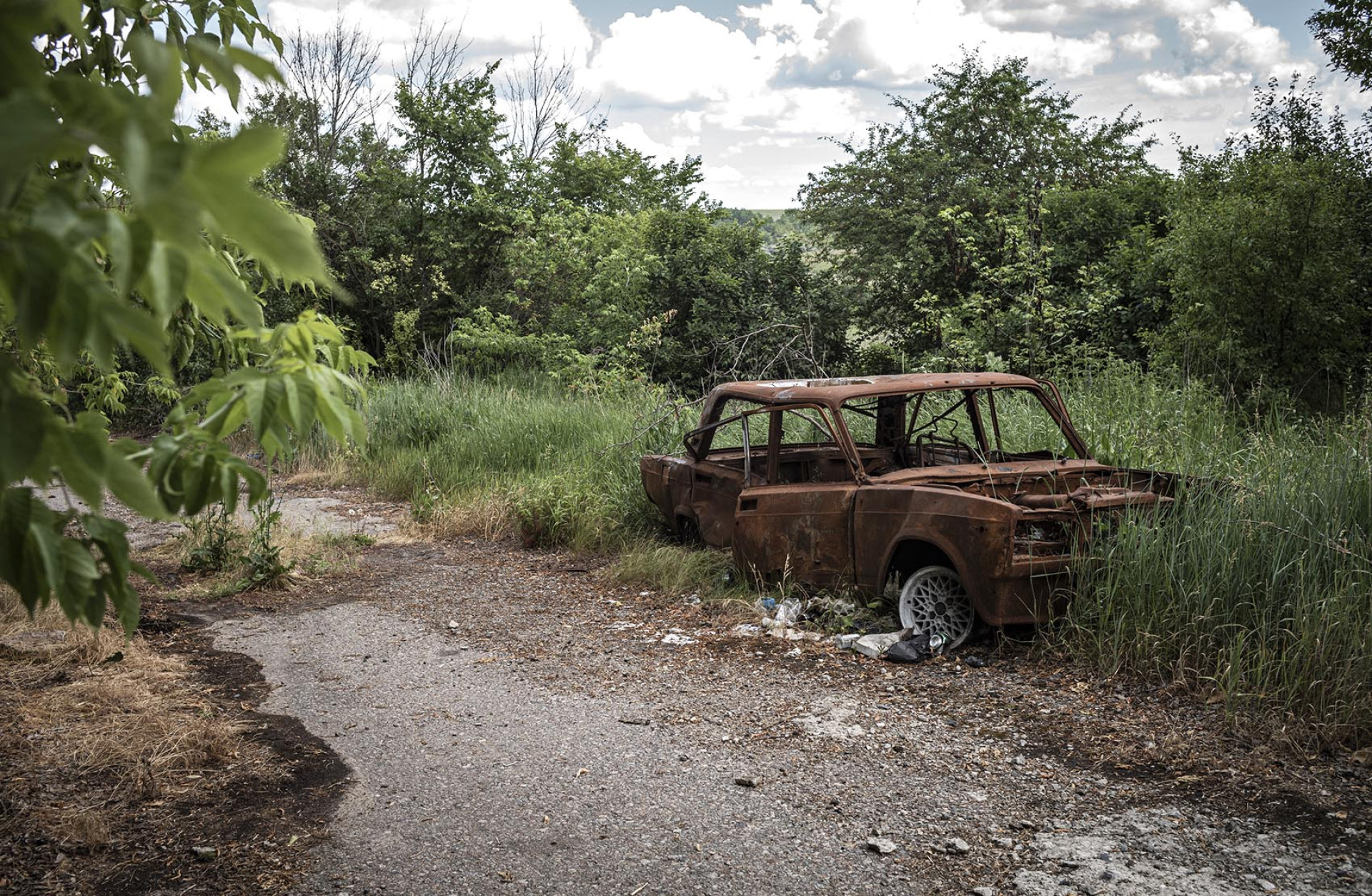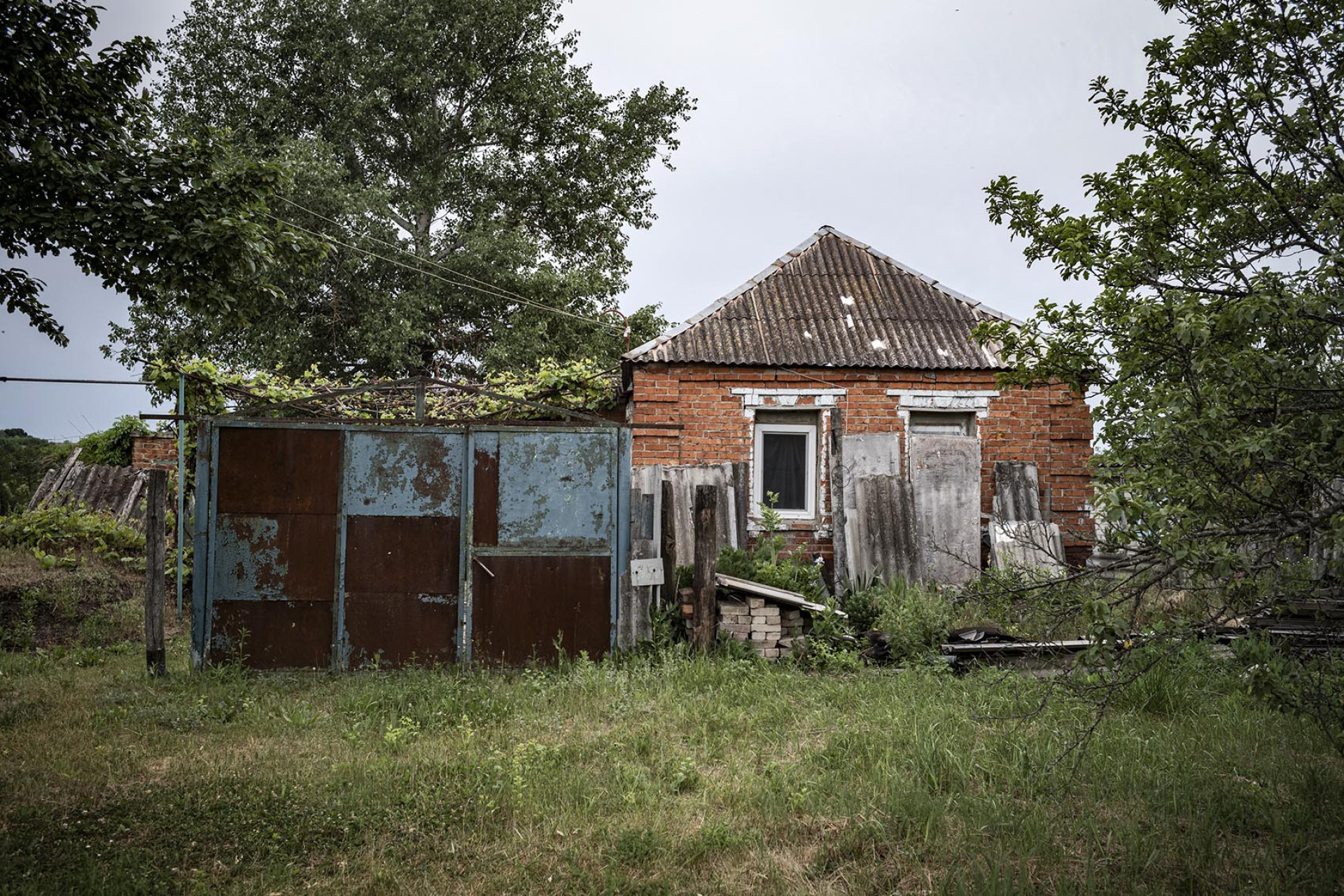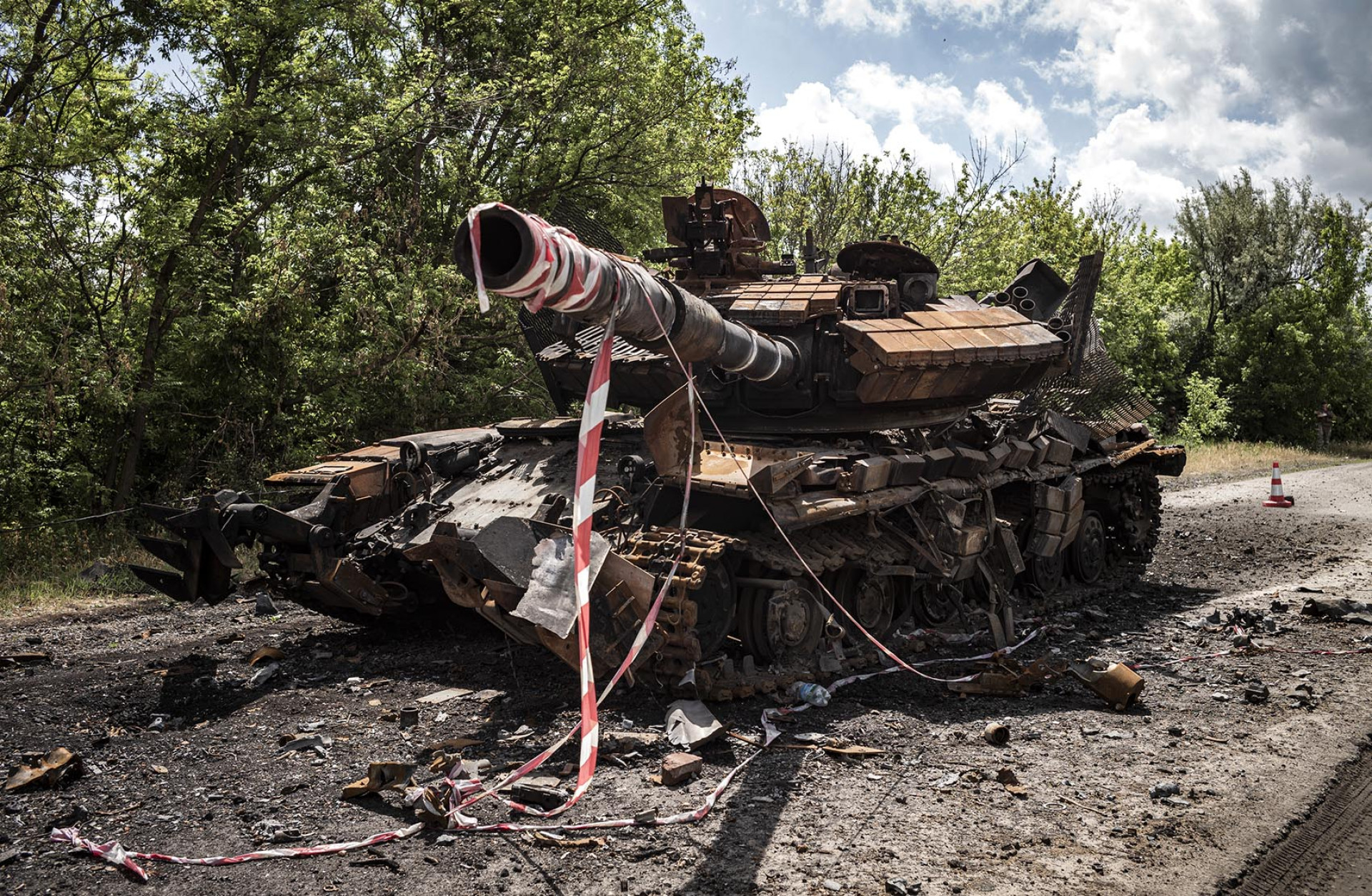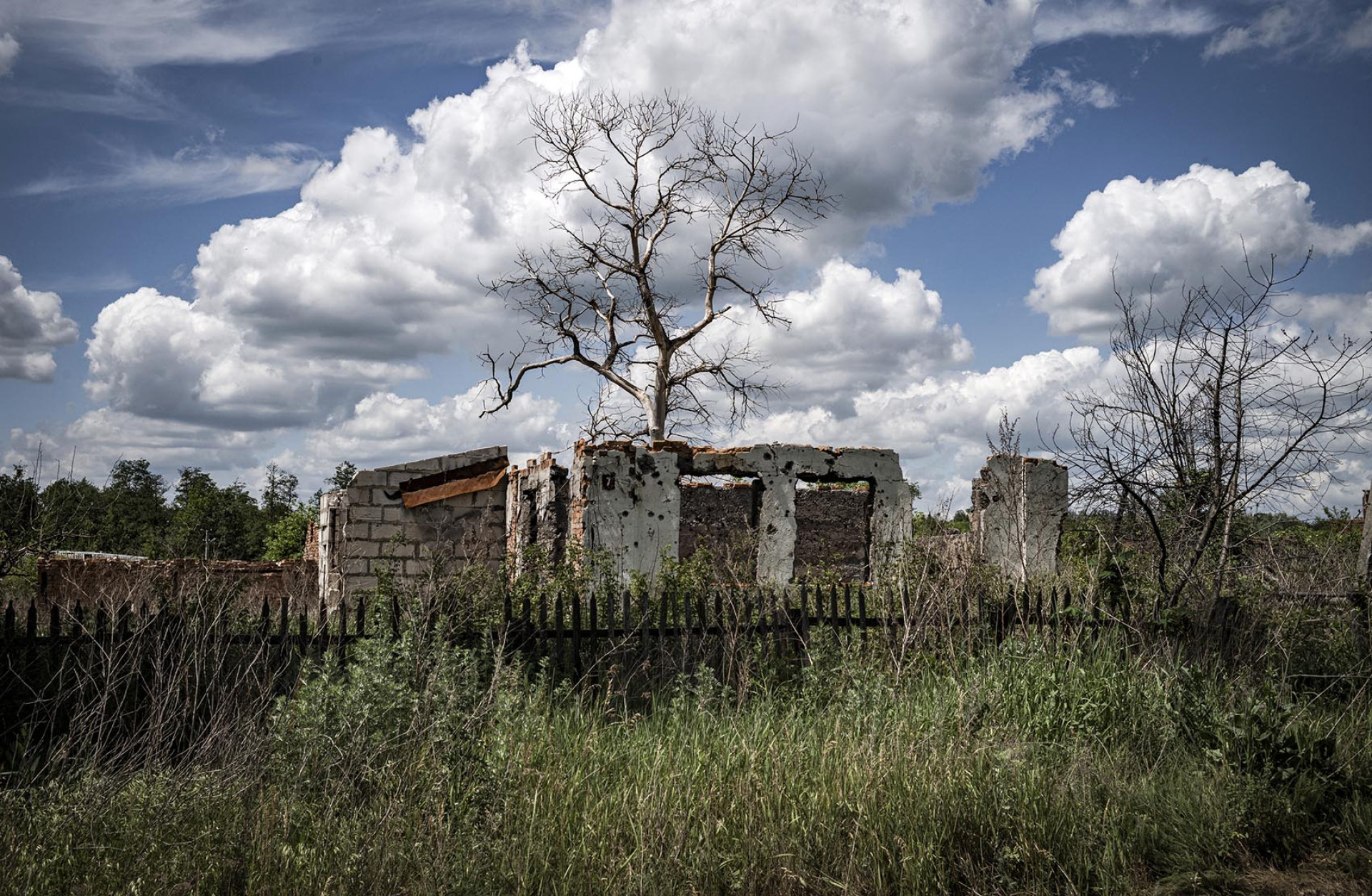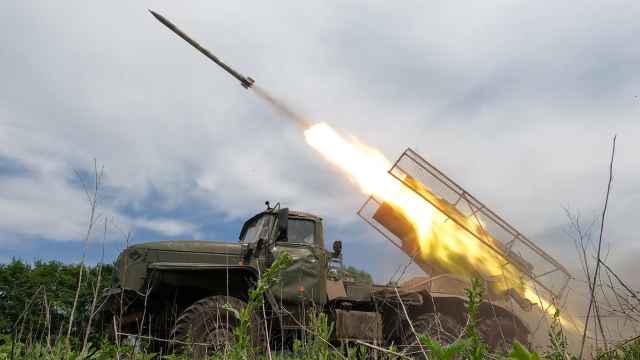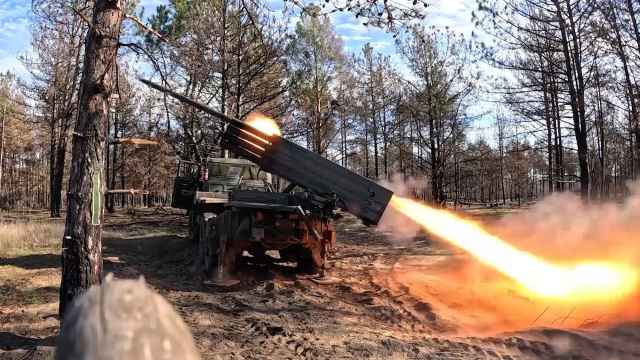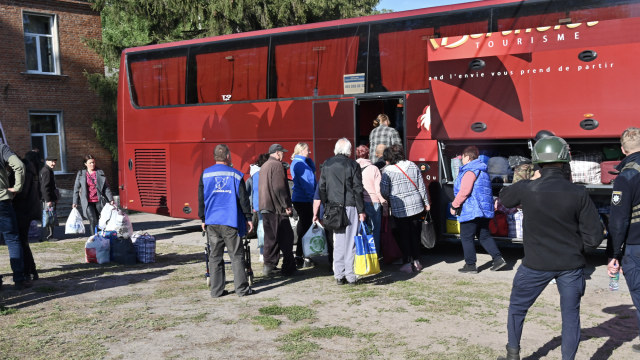KHARKIV REGION, Ukraine — An old green Soviet Lada speeds along a dirt road, skidding as it races forward. Behind the car, thick black smoke billows into the July sky. A Grad missile has just struck a small village in the Kharkiv region, less than 6 miles from the front lines.
Oleksiy, 65, is cultivating his vegetable garden just a hundred meters away. With a bright smile on his face, he seems unfazed.
Natives of the village, Oleksiy and his wife Luba spent nearly six months under Russian occupation at the start of the war before their village was liberated by Ukrainian forces during the June 2022 counteroffensive.
Life in the region had almost returned to normal after the Ukrainian victory. However, last May, Russian forces launched a new offensive in the area, once again threatening the village, which has become a rear base for the Ukrainian armed forces.
Nearly deserted since the start of the war, the village's clay houses are now occupied by Ukrainian soldiers who use them as "safe houses" between missions on the Kharkiv front.
Between cigarettes, a soldier talks with Oleksiy about news from the battlefield. Ukrainian forces have stabilized the line in the Liptsy and Vovchansk sectors, but villages behind the combat zone continue to be targeted by artillery, drones and Grad missiles. “We don’t know how long we will hold the front,” explains the soldier. “For now we stabilized it, but anything can happen.”
Oleksiy is aware of this. The war is precarious, and the front could collapse overnight.
Staying despite fear
Despite the risk of Russian forces returning and frequent shelling, Oleksiy is determined to stay.
"Why should I leave? This is my home, my land, my village, and my garden. Yes, the front is close, just a few kilometers away, but the situation is much better than when the Russians were here."
Just 7 miles from Stary Saltiv, a key Russian logistics hub during the June 2022 Battle of Kharkiv, the village saw intense fighting during the first six months of the war.
"Russian planes flew over our farm, and Russian tanks often passed through the village. We were frequently bombarded," Oleksiy recalls, pointing to the rusted, shrapnel-riddled turquoise gate of his farm. "We spent most of that time hiding in our cellar, eating the preserves we had stocked up on during the summer."
Since the village's liberation, life has almost returned to normal for Oleksiy and his wife.
"I'm retired," the 60-year-old explains. "I worked at a nearby factory most of my life and retired not long ago. But my pension isn't enough to live on, so we continue working our fields and make even more reserves in case the Russians return," he adds with a laugh.
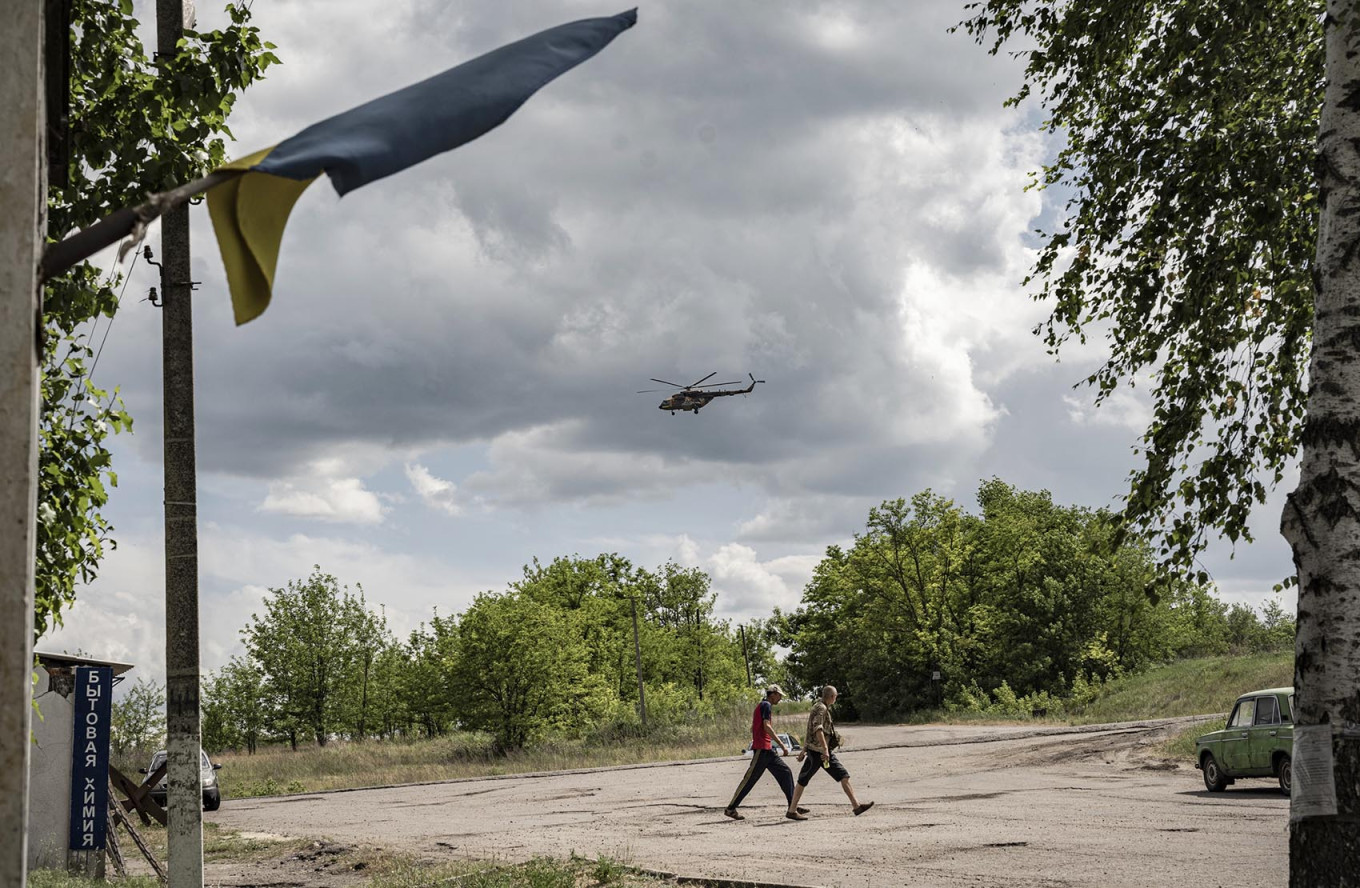
In the evening light, the distant sound of artillery can be heard. Oleksiy wipes his wrinkled face, his worried eyes gazing past the treetops. Instinctively, he calls for his dog, who quickly joins him.
Beside him, on a small bench, Luba, his wife, chats with a group of elderly women. Like Oleksiy, they lived through the Russian occupation and now fear a collapse of the front lines.
"We're very scared the Russians will come back," Luba explains. "My son sleeps, my husband sleeps, but I can't close my eyes at night. I wake up to every explosion."
With tears in her eyes, Luba recounts life under Russian occupation.
"We had nothing left, no electricity, not even bread, and it was so cold. One day, a Russian shell fell in the farmyard and killed almost all our rabbits. I had to gather them under bombardment. It was the 26th shelling of the day."
Too poor to flee
For many villagers, fleeing is no longer an option. Often too poor to leave, their only wealth is their farm and garden, the fruits of a lifetime's labor.
This situation especially affects retirees, in a country where the average pension rarely exceeds 5,000 hryvnias (about $120).
"Even if we wanted to, we couldn't," Oleksiy explains. "Where would we go? To Kharkiv? We don't know anyone there. We have no money. Where would we sleep? On the streets?"
Luba Nikolaievna, 60, Oleksiy's neighbor originally from central Ukraine, could return to her region if she wished.
But like her neighbors, Luba Nikolaievna has chosen to stay.
"There's only us left," she confides.
"Sveta, my neighbor, left at the very start of the war. The young people are either in the city or the army. If we left, it would be the end of our village."
Luba Nikolaievna also worries about their gardens, which are often the only source of food in Ukrainian countryside villages.
With her hair wrapped in a white scarf, she explains she can't bear the thought of missing a harvest.
"If we miss a season, what will we eat? No one will feed us, and we don't have enough money to buy food from the store. And there isn't even a store anymore. Everything has been closed since the war started. Where would we go? To Stary Saltiv? But we don't have a car, and even if we did, we don't have money for gas," Luba Nikolaievna says, wiping away tears streaming down her cheeks.
"I came here when I was young with my husband. It's a very beautiful village. The nature is beautiful, and the air is fresh. We can hear the fighting at the border, but for us, it's far enough away. And besides, I have my chickens, my rabbits, and my little garden where I grow potatoes and tomatoes. That's why I don't want to leave."
A Message from The Moscow Times:
Dear readers,
We are facing unprecedented challenges. Russia's Prosecutor General's Office has designated The Moscow Times as an "undesirable" organization, criminalizing our work and putting our staff at risk of prosecution. This follows our earlier unjust labeling as a "foreign agent."
These actions are direct attempts to silence independent journalism in Russia. The authorities claim our work "discredits the decisions of the Russian leadership." We see things differently: we strive to provide accurate, unbiased reporting on Russia.
We, the journalists of The Moscow Times, refuse to be silenced. But to continue our work, we need your help.
Your support, no matter how small, makes a world of difference. If you can, please support us monthly starting from just $2. It's quick to set up, and every contribution makes a significant impact.
By supporting The Moscow Times, you're defending open, independent journalism in the face of repression. Thank you for standing with us.
Remind me later.



